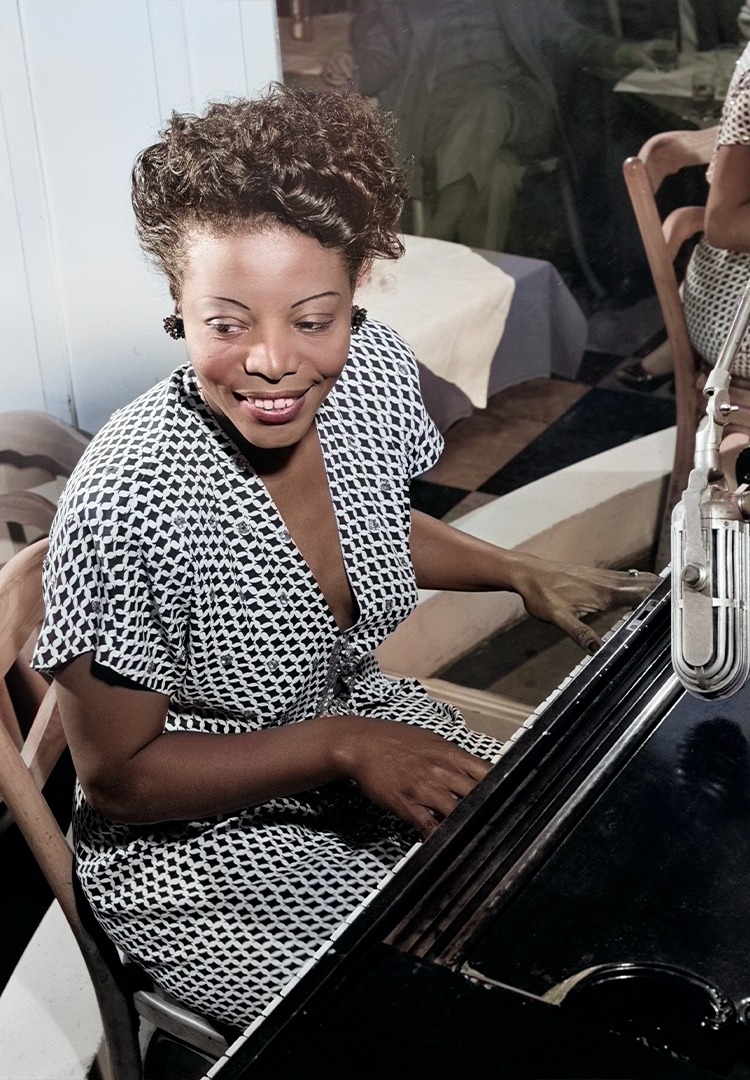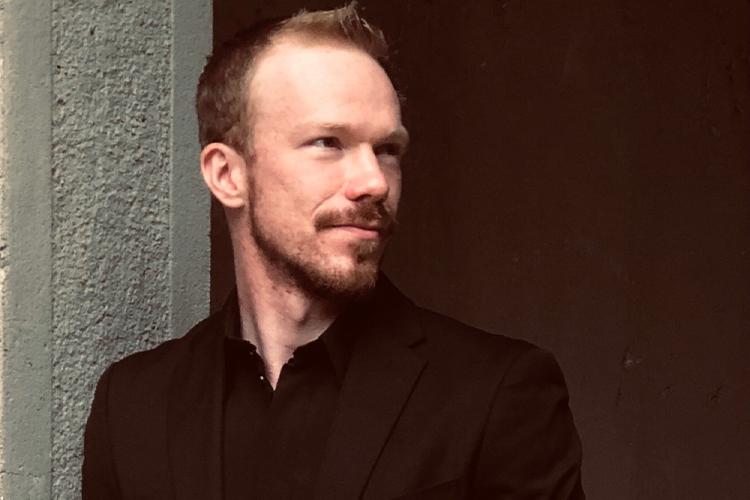
(1910–1981)
Mary Lou Williams was a pivotal jazz musician whose leadership was integral to jazz history. She was born Mary Elfrida Scruggs on May 10, 1910 in Atlanta. As a child, she often sat in her mother’s lap while the latter played piano in church. The family moved to Pittsburgh in 1915, where Williams continued to grow as a performer. At the age of 12, she was playing with various ensembles throughout the city. In 1926 Hagan married fellow musician John Williams, and when she moved to Oklahoma to be closer to her husband, she initiated a significant chapter in her career.
Williams’s husband played in a band called Andy Kirk and His Twelve Clouds of Joy, and through this connection she established herself as an incredible arranger and composer. Initially Williams began sitting in with the band, but from 1913 to 1942 she became the group’s official pianist and arranger. As news of her talent spread, Williams received commissions to work with bandleaders like Earl Hines, Benny Goodman, Duke Ellington and Dizzy Gillespie. In 1942, she left the Clouds of Joy and eventually went to New York to headline at the Café Society. Her Harlem apartment was a bustling salon that helped define the sound of swing bands and enable the birth of bebop. Williams relocated to Europe in the 1950s, and in 1954 she decided to take a three-year break from performing.
During this hiatus, she converted to Catholicism and created the Bel Canto Foundation to help musicians with recovering from addiction. When she returned to music, Williams drew her inspiration from religious subjects. In 1969 she composed the Mass for Peace and Justice, which was commissioned by the Vatican. The following year she edited and retitled the piece as Mary Lou’s Mass. Williams remained an active musician for the rest of her life, and in her final years she held an artist-in-residence position at Duke University. She died on May 28, 1981, but her roles as an invaluable jazz composer, arranger and performer continue to enrich the narratives of jazz history.

by Elizabeth Durrant
Elizabeth Durrant recently received an M.A. in Musicology from the University of North Texas. She also earned a B.A. in English Literature (St. Mary’s College of Maryland) and a B.S. in Voice (Towson University)—as a result she is dedicated to exploring intersections between these disciplines. Her master’s thesis is titled “Chicago Renaissance Women: Black Feminism in the Careers and Songs of Florence Price and Margaret Bonds.” Elizabeth plans to pursue her PhD in musicology and continue exploring her interests in Black and female composers, twentieth-century neoromantic music, and American art song.
Sources
Brady, Shaun. “Mary Lou Williams: Mother of Us All.” JazzTimes. August 23, 2021.
https://jazztimes.com/features/profiles/mary-lou-williams-mother-of-us-all/.
Brooks, Daphne A. Liner Notes for the Revolution: The Intellectual Life of Black Feminist
Sound. Cambridge, Massachusetts: The Belknap Press of Harvard University Press, 2021.
Kernodle, Tammy L. “A Woman’s Place: The Importance of Mary Lou Williams’ Harlem
Apartment,” NPR, September 12, 2019, https://www.npr.org/2019/09/12/758070439/a-womans-place-the-importance-of -mary-lou-williams-harlem-apartment.
———. “Williams, Mary Lou [née Scruggs, Mary Elfrieda; Burley, Mary Lou].” Oxford Music
Online. January 31, 2014. https://doi.org/10.1093/gmo/9781561592630.article.A2259377.
———. “Black Women Working Together: Jazz, Gender, and the Politics of
Validation.” Black Music Research Journal 34, no. 1 (Spring 2014): 27-55.
———. Soul on Soul: The Life and Music of Mary Lou Williams. Boston, Massachusetts:
Northeastern University Press, 2004.
O’Brien, Ben and George Kanzler. “Mary Lou Williams: 1910–1981, The First Lady of Jazz.”
Mary Lou Williams Foundation, Inc. Accessed on November 22, 2021. https://www.marylouwilliams.foundation/about.
Weiner, Natalie. “How Mary Lou Williams Shaped the Sound of the Big-Band Era.” NPR
Music. September 10, 2019. https://www.npr.org/2019/09/10/749743012/how-mary-lou-williams-shaped-the-sound-of-the-big-band-era.
Witkowski, Deanna. Mary Lou Williams: Music for the Soul. Collegeville, Minnesota: Liturgical
Press, 2021.




